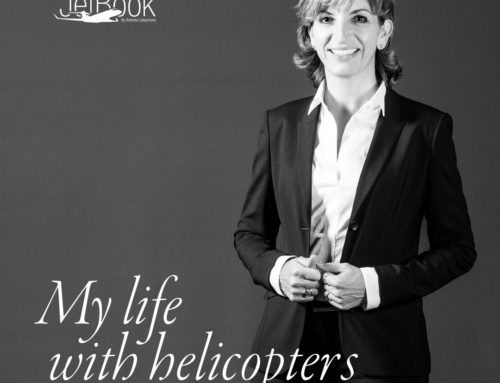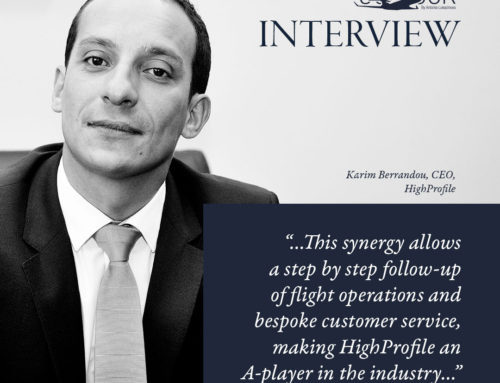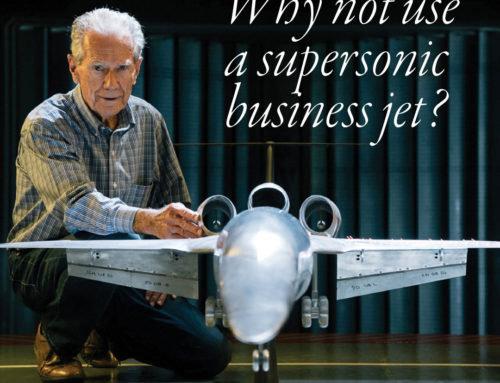After selecting your desired aircraft, where to register the aircraft is the next major decision. JetBook asked Mr. Jorge C. Colindres for his comments and suggestions, after all, he does have 27 years of experience in aircraft registration matters. Mr. Colindres founded the Aruba registry in 1995, which became the first privately managed aircraft registry in the world. Later, his Aviation Registry Group of Companies (ARG) also created the San Marino registry.
It is essential to understand that off-shore aircraft registration is not for everyone or each aircraft, each owner and operator having different requirements and needs, which is why customized solutions for aircraft registration and certification need to be offered. Through the years, Mr. Colindres has always been at the forefront of innovating, crafting and developing solutions for the aviation industry with an unmatched service-oriented focus, yet never compromising safety. His significant professional achievements make him a pioneer in the industry.
What brought you to aviation? Who or what inspired you?
My mentor, Wayne J. Hilmer (aka The Chief), Chairman of Omni International Jet Trading offered me to form the first international aircraft registry in Honduras. That was in Spring 1991. At a Presidential inauguration In January 1994, I met the Deputy-Prime Minister of Aruba at the time, His Excellency Glenbert F. Croes, and he invited me to visit Aruba to explore the possibility of developing a premier and well-regarded international aircraft registry in Aruba.
My inspiration was the energy and emotion Wayne has for aviation and the reputation he enjoys in the industry. His work ethic and first words to me made an impact when we discussed the formation of the aircraft registry: “Always remember, everyone does what we’re doing, but we have to do it better.” Those words have been my most significant motivation, to always be at the forefront of innovation, crafting and developing solutions for the aviation industry without compromising safety.
What do you see as the biggest change in business aviation since you started your career?
Many changes have taken place since I started my aviation career but one of the most significant, in my opinion, has been the implementation of Lean Principles by the OEMs in manufacturing aviation products. These practices make everyone more efficient in the aviation industry, including the application of regulatory requirements, since they implement a changing line of production much like safety standards, which are live and dynamic regulations that need to meet industry demands and always be current.
In terms of technology, I would say the use of composite materials that are lighter and stronger, the efficient use of Drones/ UAV’s and other unmanned craft, and probably soon space tourism and travel have been the major changes I’ve witnessed in my career so far.
How important is aviation to you in your private life?
Since day 1, aviation has been my heart and soul as President and CEO of the Aviation Registry Group of Companies (ARG), which includes The Registry of Aruba, San Marino Aircraft Registry, The Registry Corporation and the International Air Safety Office.
My devotion to aviation is the full understanding that service never compromises safety. Service in aviation should be managed responsibly and with knowledge. For many years, we’ve been innovators of safety-related regulatory requirements, combined with an unmatched service-oriented focus.
What was the most difficult part of starting the business in 1994 — was it the aircraft registry?
I remember it like yesterday. When we were signing the contract to develop the Aircraft Registry in Aruba with the government in 1995, we discovered that the FAA had downgraded Aruba to Category 2 and that it was affecting their tourism industry.
The Minister of Transport asked me to assist the Department of Civil Aviation in Aruba and bring them back to FAA Category 1 status, and I made a commitment to do that in six months as we had been appointed to manage the International Aircraft Registry in the long term.
It has been over 22 years since then, and the Department of Civil Aviation has passed all ICAO universal safety oversight audits and EASA and FAA Cat 1 audits with flying colours. Through our programme, we have maintained the highest aviation safety standards in the industry, and thus breaking ground for the “ABC aircraft registries” (Aruba, Bermuda, and Cayman).
Then in 2007, we faced another challenge. I was given the opportunity to form an aircraft registry in Europe, which is now the San Marino Aircraft Registry (SMAR.aero).
In September 2012, ARG executed its second long-term contract with the Republic of San Marino to manage and develop a reputable and flawless aircraft registry, which we launched at MEBAA in Dubai that same year.
The launching of San Marino came with its own set of challenges; it was one of the OECD’s blacklisted countries, ICAO safety standards hadn’t been implemented, and domestic legislation wasn’t in line with global standards. The lack of English language was also a huge barrier, not to mention that San Marino is a landlocked country and doesn’t have an international airport. Their knowledge of the aviation industry was limited.
Fortunately, by then, the younger Colindres generations were involved in the business, and they took on the challenge of putting a team together to develop San Marino. Today, SMAR is not only one of the leading aircraft registries in the world, like Aruba, but also one of the best, with over 98 percent Effective Implementation (EI) of ICAO safety standards. During its General Assembly in 2016, the ICAO awarded San Marino’s civil aviation authority with the President’s Council Award for its achievement in obtaining one of the highest scores in regulatory safety compliance worldwide.
When owners are considering where to register their aircraft, why should they consider registering it in Aruba? What are key benefits for aircraft owners?
It’s important to understand that off-shore aircraft registration is not for everyone and each aircraft, owner and operator has different requirements and needs, which is why we strive in offering customized solutions for aircraft registration and certification.
Apart from being the first privately managed aircraft registry in the world since 1995, The Registry of Aruba was the first among all offshore aircraft registries to ratify the Cape Town Convention and its Protocol. The Civil Aviation Authority of Aruba has also been a pioneer with many firsts: the first to be certified for commercial operations and grant an international AOC certificate (to Comlux Aruba NV), the first to innovate the concept of aircraft registration by domicile, under which a local legal entity is not required when registering an aircraft in Aruba, etc.
Our clients find many of our key benefits attractive, which include:
Private, Corporate and Commercial aircraft registration
FAA Category 1 status and ICAO Standards Compliant Civil Aviation Authority
Type Certificate (TC) and associated Type Certificate Data Sheets (TCDS) acceptance from FAA, Transport Canada, EASA and Brazil
Aircraft registration in 24 to 48 hours
We operate 24/7 all year round
Flight crew validations and special approvals in 24 hours or less
Foreign AOC under an ICAO 83bis Agreement
Foreign legal corporate entities and existing US trustees corporate structures can elect registration by domicile
Aircraft registered in Aruba are exempt from taxation and import duties
Favourable Tax Jurisdiction, 0% VAT, 0% corporate tax, 0% income tax if proper structure is set-up
A large pool of designated operations and airworthiness inspectors based worldwide
Cape Town Convention ratification
Maintenance acceptance equivalency standards with EASA, Singapore, Saudi Arabia and UAE
Only off-shore aircraft registered with aircraft based and operating under an FAA commercial AOC
USA pre-clearance for commercial and charter operators, arriving into the USA as domestic flights
Bilateral Aruba-USA transport according to the seven freedoms of the air
How would you describe your typical customer? Are there any unique requirements? Who are your main clients?
Our clients are more like family and friends to us since we develop very close and personal working relationships with each and every one of them. They include business personalities, international operators, banks and leasing companies, heads of state, royal families and private high net-worth individuals.
There are several aircraft registries, and of course, they all promote themselves as being the best or most beneficial. What makes the difference between one or another? If you were a new aircraft owner, what would you be looking for and what might be typical red flags that hold you back when selecting a registry?
Registering an aircraft in a foreign jurisdiction requires that the owners/operators do their due diligence for the country in question and all its applicable regulatory requirements to determine if it meets their needs, such as protecting the residual value of the aircraft when it is sold or re-registered in another jurisdiction.
Red flags would include but are not limited to the following:
Any State with a Civil Aviation Authority that has been negatively assessed by the ICAO or downgraded by the FAA
Political instability in the jurisdiction
A black-list of any kind
The lack of legal requirements to protect the asset
The inability of the jurisdiction to form a public mortgage register
The inability of the Civil Aviation Authority to service the aircraft to maintain its certification basis and keep it in airworthy condition.
Your company handles offshore registration at the Registry of Aruba, an autonomous island nation in the Kingdom of the Netherlands.
Not everyone may be familiar with Aruba.
Should a customer worry about political, fiscal or geographical complications if they aren’t familiar with the country?
We all know that the International Court of Justice is based in the Netherlands, and as Aruba is an autonomous overseas territory of the Kingdom of the Netherlands, one can quickly determine, despite its geographical location in the Caribbean, that Aruba’s legal and political system is in line with EU legislation. It is considered one of the most stable jurisdictions, with the third highest per-capita income in the Americas after the US and Canada.
Its legal system is based on the Dutch legal system and its Supreme Court is in The Hague. Also, Aruba is a white-listed State by the OECD and one of the very few off-shore jurisdictions that enjoys bilateral transport agreements with the US and the EU.
Aruba has enjoyed working relations with many international banks and leasing companies, such as AerCap, GECAS, McQuarrie, Bank of America, the US Government EX-IM Bank, UBS, Credit Suisse, BOC, Boeing Capital, AWAS, CIT, Avmax, ICBC, Air Lease Corporation and many more.
Aruba is also the only off-shore aircraft registry that has had the honour of participating and aiding in the registration of two of the most significant national carriers at the beginning of their operations, Qatar Airways and Air Astana, as well as the registration and certification of the first VVIP BBJ-B777-200LR aircraft for commercial charter operations for Crystal Cruises (Crystal Air Cruises).
Changes are happening all over the world. Do you foresee any difference in how people will purchase and register their aircraft in the future?
What should we consider now that might change later and either have a positive or negative impact? Please give us a “buyer beware”.
You first need to understand the needs of aircraft owners and operators and follow the simple rules of supply and demand when buying an aircraft. Since aircraft are mobile assets, as an aircraft owner you must be aware of and understand what is meant by AIR SAFETY FIRST and how it plays the most crucial role when operating an aircraft. Buyers need to be especially vigilant of aviation regulatory requirements, as they aren’t static but continually evolving.
If you’re thinking about purchasing an aircraft, make sure that you’ve done your homework and conducted the necessary pre-purchase and physical inspection on the aircraft and its records as well as hired an experienced aviation attorney to safeguard your best interests as a buyer. Choosing an aircraft registry that has a good reputation is essential to maintaining the residual aircraft value.
Your registry of choice must also understand your operating needs and the geographical location where you’ll be operating in order to guide you accordingly.
Buyer’s beware: Never compromise safety standards for convenience!
You have a tremendous background of expertise that goes far beyond aircraft registration activities and even beyond the field of aviation.
What else can you offer clients that they will appreciate in their relationship with you and your company?
Since day one, I’ve made a commitment to each individual Client to offer the best possible aircraft registration experience they’ve ever encountered across all my registries.
We thrive on maintaining the highest safety regulatory standards in the industry combined with the service and ever-evolving customized solutions to complement and safeguard their operations. We are not a “one size fits all” aircraft registry.
We actively work with our Clients and listen to their specific needs to offer them a customized solution while always remaining within safety standard parameters. As pioneers and a self-funded public-private partnership, we succeed in being ahead of the competition and being the most active aircraft registry company, always focusing on and striving to maintain our boutique appeal.
I genuinely feel that our clients appreciate our team’s professionalism, knowledge, transparency, experience and availability even at the most remote operating location. The history and reputation the ARG Group of companies and the Department of Civil Aviation of Aruba have developed with other Civil Aviation Authorities also makes us one-of-a-kind.
Which are the most popular aircraft among your customers?
In terms of privately operated aircraft, we’ve seen across the board that the G550 and the Global Express series are the front runners as favourites.
For VIPs though, many of our clients operate Boeing business jets, making it the second favourite aircraft type we see.
We have a lot of BBJs registered in Aruba, ranging from BBJ-500, BBJ1, BBJ2, BBJ-757, BBJ-767, BBJ-777-200LR and BBJ-787 Dreamliner.
As far as commercially operated aircraft go, Airbus and Boeing series are split 50/50 more or less, with Embraer second and Bombardier in third place.
How many aircraft are already registered with the Registry of Aruba?
In our long history of aircraft registration, The Registry of Aruba has registered over 500 aircraft, 190 of those being active. These are both commercial and privately-operated aircraft.
What about your favourite jet? Do you have any?
Not to be pretentious, but my favourite aircraft is the Gulfstream G650 ER.
I’m always hopeful the younger Colindres will surprise me one of these days with one as a Father’s Day gift.
What changes do you see in the future of business aviation?
I can only anticipate more safety-related regulatory requirements for the future, as aircraft are becoming more efficient with the introduction of lighter materials and components manufactured by the OEMs, as well as the possibility of using unmanned aircraft for private and commercial air transport operations by 2050.
How much business does your portfolio of aircraft conduct in Europe and Asia?
Our portfolio of aircraft is spread across the whole world: Europe, Russia, Asia, Central Asia, the Middle East, the US and the Caribbean.
Currently, our largest markets are Europe, Russia and Central Asia.
JC’s chamber of secrets: What makes you happiest in your work?
Seeing two of my kids (David and Alexandria) actively working at ARG, with David managing the San Marino Aircraft Registry and Alex controlling The Registry of Aruba, taking my wild idea to the next level. Understanding and improving my philosophy of never compromising AIR SAFETY FIRST for the service while maintaining a unique and exclusive service approach.
I could say much more, but one of my other secrets is the two teams behind both aircraft registries that run our daily operations, and the trust that the governments of Aruba and San Marino have put in me, which I will always be thankful for and honoured to have been given the opportunity.
Lastly, having created the first privately-managed FAA Category 1 and ICAO compliant aircraft registry is by far my most significant professional achievement, making me a pioneer in the industry.





